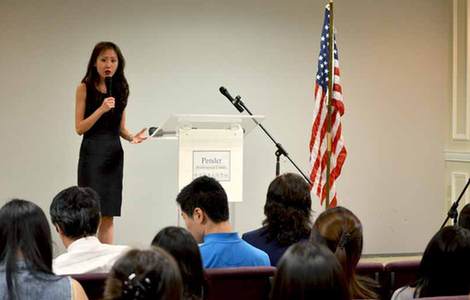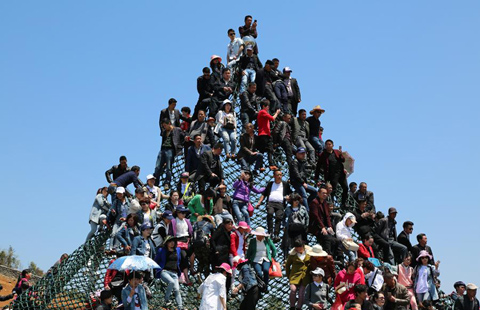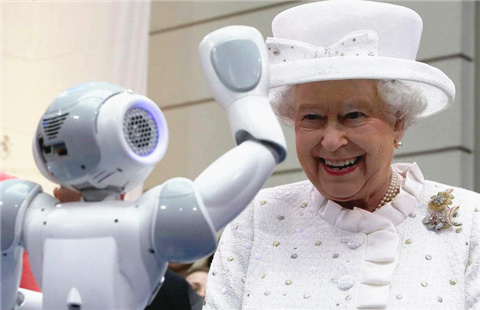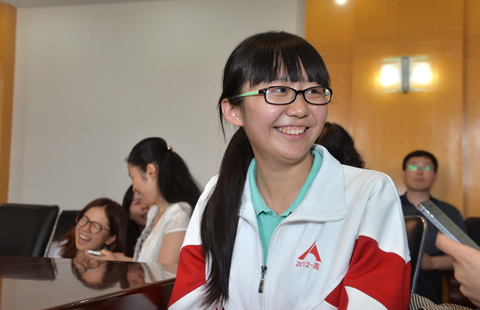BRICS not yet a strategic alliance: expert
Updated: 2015-06-29 05:18
By BRUNA GAMA in Rio de Janeiro(China Daily Latin America)
|
||||||||
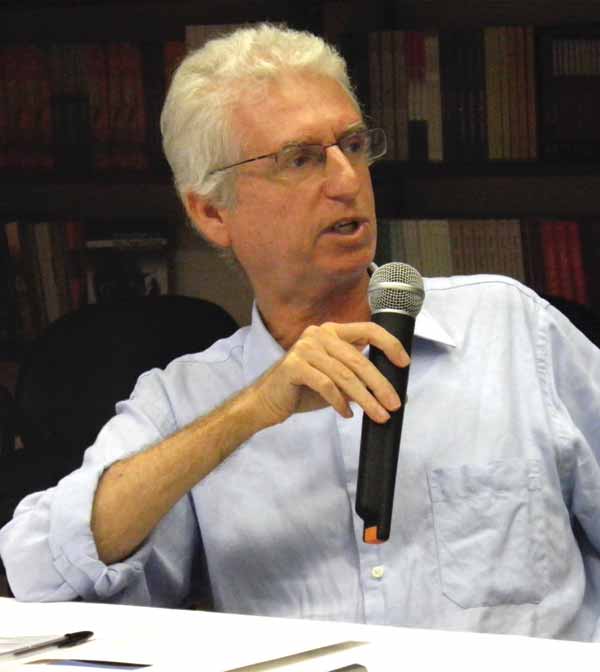 |
|
Paulo Wrobel in a seminar |
The BRICS bloc -- Brazil, Russia, India, China and South Africa -- has made significant advances in its seven years of existence, but the members still aren't a political strategic alliance, according to a Brazilian expert.
Paulo Wrobel of the Brazilian think tank BRICS Policy Center said it is clear that the BRICS group has grown a lot and relations between members are much deeper now than seven years ago when the first BRICS Summit was held in Yekaterinburg, Russia. The seventh BRICS Summit will be held on July 9-10 in Ufa, Russia.
Contact between member countries also isn't limited to the annual summits, he said, noting a BRICS Development Bank and a Contingency Fund are in the works and several meetings on a variety of sectors, such as education, technology, culture and finances, are held periodically.
"Parallel to the summits, a network of relations has been developing among BRICS countries, and those relations are not only state-state or government-government, they involve academics and the civil society as well," Wrobel told China Daily on June 24.
But Wrobel said it is still too early to speculate on whether BRICS will strengthen their political alliance in the near future because BRICS members are very diverse with equally diverse interests.
For example, he said, China and Russia are in the UN Security Council, while Brazil, South Africa and India campaign for the council's reform and their inclusion as permanent members. Russia, China and India are nuclear powers, while Brazil is prohibited by its constitution to have nuclear weapons and supports nuclear disarmament.
It is difficult to conciliate different political positions in some matters, and the BRICS aren't, at least yet, a political strategic alliance, Wrobel said. Still, they show a certain degree of political solidarity, as evidenced by their action at the UN on the Crimea situation last year, in which BRICS countries abstained instead of voting against Russia, he added.
"That was a gesture of solidarity, which I am not sure would have happened if not for BRICS," Wrobel said.
If political cooperation has some challenges, in terms of economic cooperation, BRICS have advanced quite a lot in a short time, Worbel said. Last year, during the sixth summit in Brazil, the group announced creation of the development bank and the contingency fund, which he called a very important advance on the institutional front.
"The BRICS Development Bank represents the first institution in terms of high level governmental collaboration to have a concrete role: to finance development projects to the BRICS members and to countries outside of the bloc," Wrobel said.
The BRICS bank and the fund aim to be alternatives for developing nations so they are less dependent on institutions like the World Bank and the International Monetary Fund. According to Wrobel, though, the World Bank's importance has dwindled over recent years, with even Brazil's own Development Bank (BNDES) lending more money, while the IMF remains strong.
He also said that because China is the largest contributor to the BRICS Contingency Fund, the fund also reflects the increasing importance of the yuan as an international currency, which is a victory for China and an acknowledgment of its growth.
Economic cooperation among the BRICS has advanced, but it is not without hardships, either, he said.
The economic perspectives for the bloc this year are not good, according to Wrobel, with India the only BRICS country expected to have a good year on growth rate.
- Japan's Diet gets 1.65m signatures against security bills
- Thailand's first MERS case declared free of deadly virus
- US, New Zealand to discuss Pacific co-op
- Beijing and Brussels unlikely to reach consensus on investment synergy
- Hollande, Essebsi vow 'solidarity against terrorism' after attacks
- French beheading suspect was 'normal neighbour'
Most Viewed
Editor's Picks

|

|

|

|

|

|
Today's Top News
European visit to find economic synergies
Disney bans selfie sticks at theme parks over safety concerns
China gets 30% stake in AIIB as bank takes shape
New York prison break ends with shooting of 2nd fugitive
Nation can meet growth challenges, premier says
China mulling 'green finance' to tackle environmental blues
Top leadership studies anticorruption ahead of CPC anniversary
Key events in the history of US gay rights
US Weekly

|

|
